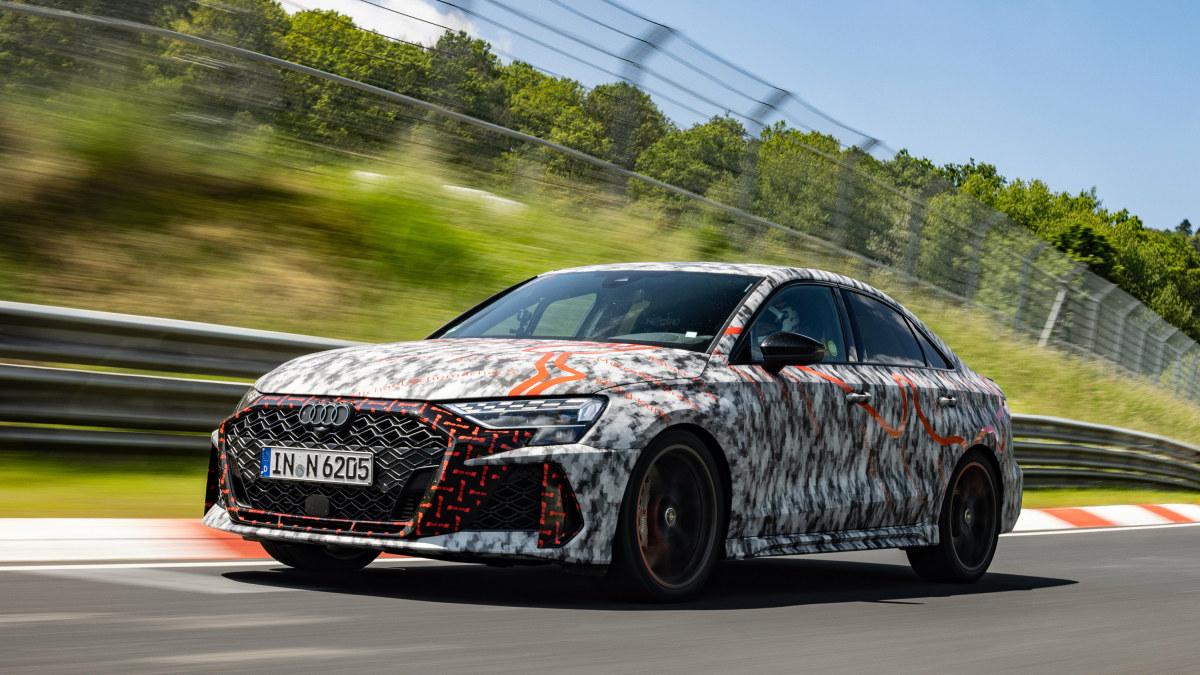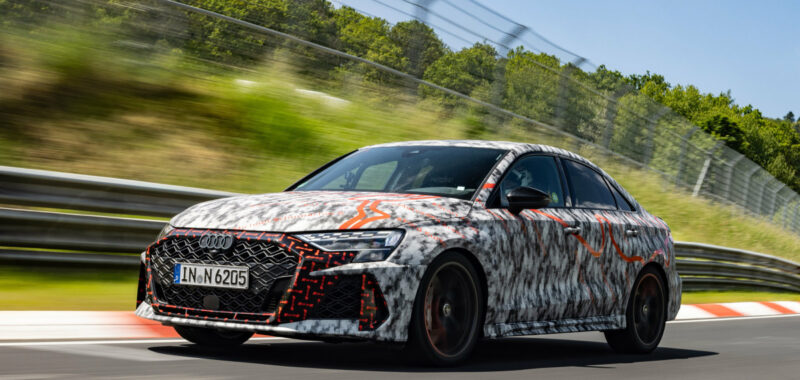
Audi’s been busy putting in work at the Nurburgring. Audi race and development driver Frank Stippler ran the new RS Q8 Performance around The Green Hell in 7:36.698 lap, setting a new record for SUVs by beating his previous record time in a 2020 RS Q8 by just under 16 seconds. The same Stippler achieved the same feat in the coming Audi RS 3 sedan, hitting a record time of 7:33.123 to set a new record for compact cars that aren’t front-wheel-drive. He eclipsed his previous time in an RS 3 in 2021 by seven seconds, and this time, bested the previous record set by the BMW M2 by more than five seconds, a 7:38.706 lap run in 2023.
We’d like to interject some historical perspective. The same year I started writing for Autoblog, shortly after the end of the Qing dynasty, Porsche racing legend Walter Rohrl set a 7:31 ‘Ring time in a 2007 Porsche 911 GT2. Up to that point, the only times faster than Rohrl’s effort had been set by barely-road-legal track monsters from Radical and Donkervoort, and the Pagani Zonda. The following year, the 2009 Chevrolet Corvette ZR1 opened the Blue Devil account with a 7:26.4 and the R35 Nissan GT-R reestablished Godzilla credentials with a time of 7:29. The coming Audi RS 3 would sit right behind them, that trio ahead of the 2008 Ferrari F430 Scuderia, 2008 Lamborghini Gallardo LP 560-4, and 2008 Porsche 911 Turbo. (Of course, those days had their surprises, too, like the 2009 Dodge Viper ACR beating a Ferrari Enzo, Koenigsegg CCX, Maserati MC12, Pagani Zonda F Clubsport, and Porsche Carrera GT.)
The RS 3’s 2.5-liter five-cylinder will make the same output as the last Euro-market car, 394 horsepower and 368 pound-feet of torque. Audi credits a few updates for the sedan being able to make more of the output. The fully variable rear differential can send all torque to either side of the rear axle, assisted by brake-based torque vectoring. A new vehicle dynamics controller processes more dynamic data with more agility thanks to an updated algorithm. And the optional adaptive RS sports suspension working semi-slick Pirelli P Zero Trofeo R tires deserve a nod, so too the 19-inch carbon ceramic braking system. Stippler said, “The new RS 3 turns in more willingly at corner entry thanks to fine-tuning — including brake torque vectoring — which allows the vehicle to be positioned earlier and better for corner exit from the apex, at the latest. The result is a lower steering angle from apex to corner exit, which leads to less friction and earlier acceleration, allowing you to carry more momentum and speed onto each subsequent straight.”
We anticipate Audi debuting the new RS 3 in August shortly before order books open for the European market. An announcement for the American market shouldn’t be long behind that. And sometime beyond then, Audi’s hinted it will launch an even more powerful version of its famous five-cylinder.
Related video:

